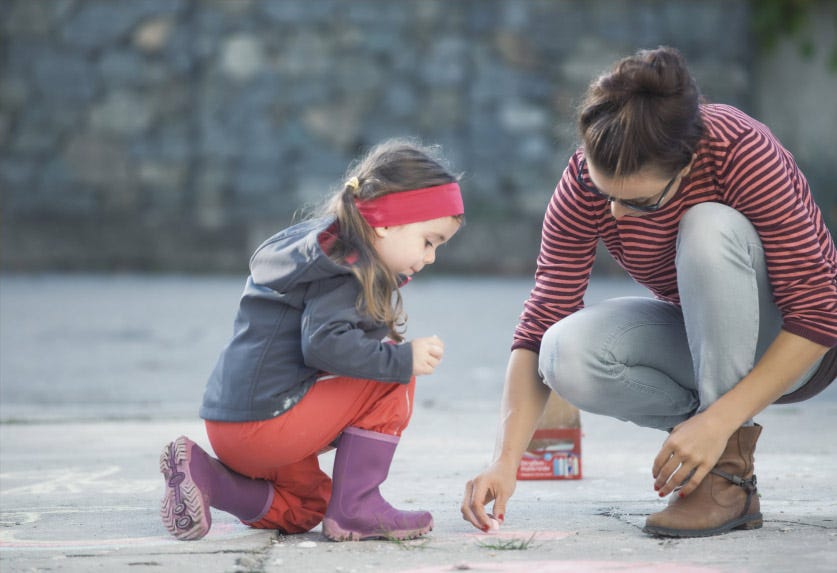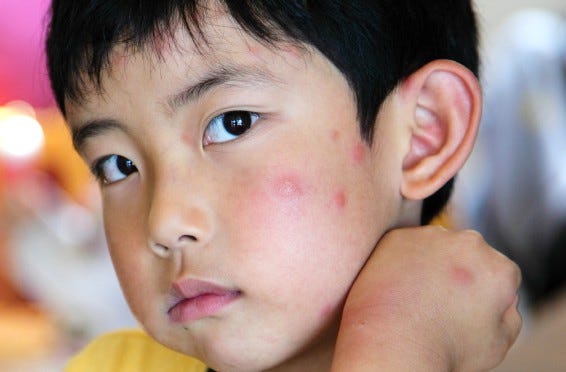
If your child gets a mosquito bite, his or her first instinct is to scratch the itchy bump the mosquito left behind. Don’t let that happen! Repeated scratching can eventually lead to a bacterial infection or worse. Instead, address the bite immediately, and then use the experience as a teaching tool to help your child from becoming a victim a second time.
Mosquito 101 for Kids
There are 176 species of mosquitoes in the United States, so no matter where you live your children will encounter these pests sooner or later. You’ll want to explain a few basic facts about mosquitoes:
1. What Mosquitoes Look Like
Teach your child to identify mosquitoes. Talk about the sound they make and even have some fun trying to imitate it. Show them how small mosquitoes really are as you study pictures of them online. In fact, Mosquito Magnet® has handy photos and facts about mosquitoes that will really help youngsters understand a variety biting insects.
2. How Mosquitoes Live
A simple way to explain the mosquito life cycle is to describe it as an insect that transforms as it matures. Talk about how the female mosquito bites, yet male mosquitoes do not. Explain how mosquitoes lay their eggs in still water and ask your child to name some places — such as ditches, puddles and ponds — where mosquito eggs might be found. Have them draw a mosquito or color a picture that includes multiple mosquito habitats.
3. Mosquito Bites
Once kids are bitten or learn about mosquito bites, they may get scared. It’s important to offer reassurance. After all, they just found out about a bug that sucks their blood! Talk about how much blood is in the human body — about 5.5 liters for someone who is 150 pounds — and how much a mosquito takes — about 0.001-0.01 milliliters. Explain how the body can make more blood and that losing such a tiny amount won’t be noticed. Even a whole swarm of mosquitoes can’t take much blood — they’d just make a person extra itchy! Also, it can be comforting for children to learn about why mosquitoes bite people. Surprisingly, they are not actually using the blood as food, instead mosquitoes drink the nectar from flowers. The female only needs blood to help her eggs to mature. In fact, most mosquitoes prefer to bite smaller animals rather than humans. The itchiness after the bite is the result of special ingredient in her saliva, not the wound itself.

How to Handle Mosquito Bites on Toddlers and Kids
Seeing your child in pain because of a mosquito bite can be difficult, especially if your child is young and doesn’t understand what’s happening. It’s almost impossible to avoid bug bites entirely, but you can help after the fact by:
1. Applying Ice or Aluminum Chloride
As soon as possible, apply aluminum chloride, which is found in roll-on deodorants, or ice wrapped in a towel to reduce swelling and itching.
2. Stop Scratching Behaviors
Help your child understand that scratching their mosquito bites can actually make them much worse. By scratching it, the area could get raw and may become infected. If left unchecked, an infection could result in a serious medical condition. Luckily, there are a few ways to reduce the chance a simple mosquito bite can get infected:
- Wash the mosquito bite as soon as you can with soap and cool water
- Apply a hydrocortisone or Calamine lotion to reduce itchiness
- Cover the bite with a bandage to limit its access to the bite area
- Trim your child’s nails to reduce the risk of broken skin
3. Watching Out for Signs of Problems
Most children will recover from a mosquito bite with a little soothing lotion to ease the itching. In some instances, though, mosquito-borne diseases or an infection require medical help. If your child’s mosquito bite gets swollen, red, feels hot or shows any signs of pus, visit a doctor. Do the same if your child develops a fever, stomach ache or headache after a bite.
4. Getting Your Child to Talk About the Bite
Talk to your child to find out if they have any questions or fears about their bites or about mosquitoes. If they remain concerned, offer some reassurance and additional information.
5. Teaching Kids to Be Safe
Teach your child that they can protect themselves by wearing long sleeves and pants when temperatures reach 80 degrees. It’s at this temperature when mosquitoes become most active. Show your child 80 degrees on a thermometer and find lightweight, yet protective, clothing that’s suitable for outdoor wear. Teach them how to apply insect repellent if they’re older and can apply it without your assistance.
Lessons on Mosquitoes
How did your lesson on mosquitoes go with your little ones? Tell us all about it in the comment section below. If you had them draw or color pictures of mosquitoes, share them with Mosquito Magnet® on Facebook. We will be happy to show them to the world! If you’re looking for additional ways to protect your home and family from mosquitoes, check out the Patriot mosquito trap from Mosquito Magnet®. Also, subscribe to our E-Newsletter for more ideas on battling mosquitoes and special announcements from Mosquito Magnet®.




